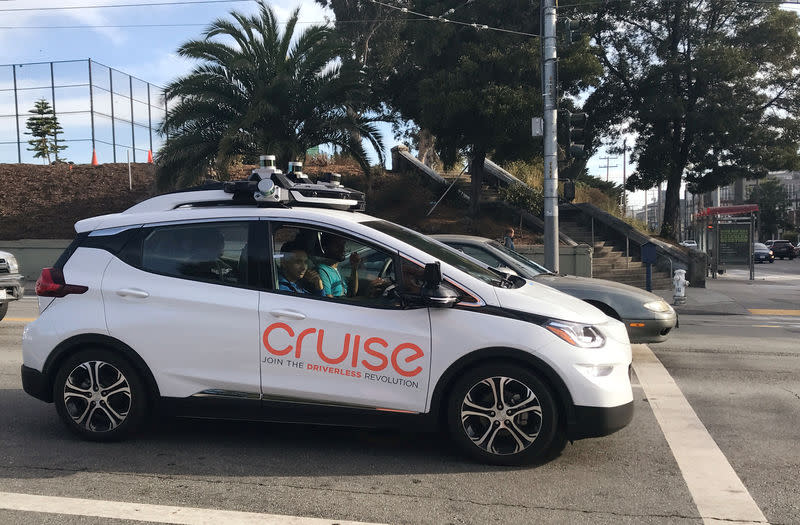GM is killing the family sedan, too
Will you miss the Buick Lacrosse or the Chevrolet Cruze? General Motors is betting you won’t.
The nation’s biggest automaker announced several big moves on Nov. 26, including the discontinuation of some slow-selling passenger cars and more investment in electrics and self-driving vehicles. Investors cheered, pushing GM (GM) stock up more than 5%.
GM will stop making several sedans, including the Buick Lacrosse, Cadillac CT6 and XTS, and the Chevy Cruze and Impala. Ford made a similar move earlier this year when it said it would stop building most passenger cars in the U.S. market, with the exception of the popular Mustang muscle car. Fiat Chrysler, home of the Chrysler, Dodge, Jeep and Ram brands, has all but given up on traditional sedans as well, with only the dated Chrysler 300 and Dodge Charger in its portfolio.
All about SUVs
Sedans have dropped out of showrooms as higher-sitting crossovers and SUVs have become the new family chariots. Automakers now offer crossovers in nearly every size and price range, with economical powertrains available for those who care about gas mileage. The rear hatch makes them a bit more practical for hauling gear, and all-wheel drive, available on most crossovers, abets a go-anywhere mindset, even if most crossover owners never leave the pavement.
[Ride along as Rick & Pras check out the newest and coolest automobiles.]
The move away from the BOS—boring old sedan—has been underway for years. Passenger cars have fallen from 50% of the U.S. market in 2012 to just 31% or so today. Sales of subcompact cars are down 23% this year, according to research site KBB, but sales of subcompact crossovers and SUVs are up 29%. Sales of midsize cars are down 17%, while sales of midsize crossover and SUVs are up 7%. Overall vehicle sales are up only 0.6% this year, with many forecasters saying car purchases are at or near a cyclical peak. So automakers need to kill slow-selling models to protect profit margins.

GM will close five plants in 2019, affecting about 6,700 jobs in Ohio, Michigan, Maryland and Ontario, Canada. The automaker also aims to cut its North American salaried workforce by about 18,000 positions. In total, GM employed about 103,000 blue-collar workers and 77,000 salaried employees at the start of the year. While the cutbacks will cause hardship for workers, GM says they’ll add $6 billion to free cash flow by 2020.
GM also plans to double its investments in electrification and autonomous technology. While upstart Tesla and tech giants such as Alphabet get a lot of coverage for their automotive research, GM and other old-line automakers have been investing billions in such technologies for years. The Chevy Bolt electric hatchback, which has been on sale for two years, is a testbed for much of GM’s electric technology. GM also builds the Supercruise self-driving system, one of the most advanced autonomous features available today.
While axing some of its weakest models, GM isn’t killing all of its sedans. The Chevy Malibu and Cadillac CTS, for instance, are likely to remain. And while passenger cars have dropped to around one-third of all sales, that’s still a lot more than zero. Toyota, Honda, Nissan and other global manufacturers seem likely to keep producing the BOS, as part of their cover-every-angle product portfolios. It might be out of fashion, but the boring old sedan isn’t completely out to pasture.
Confidential tip line: rickjnewman@yahoo.com. Click here to get Rick’s stories by email.
Read more:
Rick Newman is the author of four books, including “Rebounders: How Winners Pivot from Setback to Success.” Follow him on Twitter: @rickjnewman

